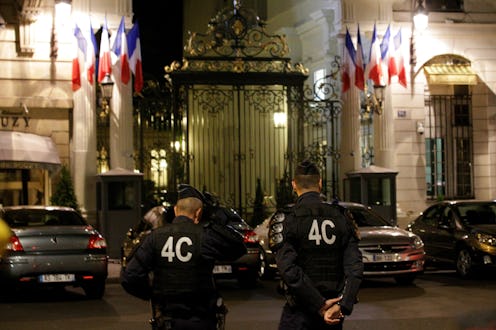News
Is ISIS Behind The Nice Attack?
Update 1: According to the latest reports, at least 84 people were killed in the attack in Nice, France, and over 180 are injured. Of the wounded, François Hollande, the president of France, said on Friday there are 50 victims “in between life and death." After an emergency meeting of French security and defense officials, Prime Minister Manuel Valls said: "Terrorism is a threat that weighs heavily upon France and will continue to weigh for a long time. We are facing a war that terrorism has brought to us." Among the victims, who were celebrating the French holiday of Bastille Day, were a number of tourists, including two Americans, Sean Copelend and his 11-year-old son, Brodie. To help victims of the Bastille Day attack, you can contribute to verified fundraisers or donate blood.
Update 2: Early Saturday morning, ISIS released a statement announcing that one of their "soldiers" had carried out the attack. CNN reports that the statement read, in part: "The person who carried out the run over in Nice, France, is one of the Islamic State soldiers and carried out the operation in response to calls to target nationals of the coalition which is fighting the Islamic State."
Earlier: On Thursday night, celebration turned to terror in Nice, France, as revelers who gathered to celebrate Bastille Day were crushed under a truck that plowed through the city's Promenade des Anglais. While no suspect or group has officially been named by the French police or Interpol in the attack, social media users are already asking: Is ISIS behind the Nice attack?
Again, ISIS has not officially been named as the group behind the attacks, but the Terrorism Research & Analysis Consortium said earlier in the night that Islamic State supporters have been posting on social media about the attacks. Additionally, an ISIS-affiliated Twitter user said the attacks were in retaliation for the death of Abu Omar al-Shishani, an ISIS commander.
While the disgusting supposed celebration of the attack and claims of retaliation certainly make the attack appear ISIS-related, they hardly count as an admission of complicity or claim of responsibility, as ISIS is known for claiming attacks they didn't commit as a means of self-promotion.
Despite the potential for self-aggrandizing ISIS claims, the French Council of the Muslim Faith has condemned the attack, in an effort to, once again, distance the overwhelmingly moderate members of the Muslim faith from the sacrilegious actions of ISIS. They do so in hopes that people will not retaliate against Muslims in France, which has a propensity for Islamophobic sentiment similar to the United States.
With emerging reports from French media that the person responsible for the attack is French-Tunisian and held dual citizenship in both countries based on an ID card found in the truck, Twitter has been abuzz in an Islamophobic frenzy, already calling the attacker Muslim (though their identity and therefore religion have not been released to the public). In a press conference, French President François Hollande said France "is under the threat of Islamic terrorism," adding fuel to an already-raging Islamophobic fire.
When tragedy strikes, it's an understandable human tendency to look for someone to blame. Unfortunately, in the tech-centric world we live in, publicly blaming (or scapegoating) a group has consequences that reach far past the perpetrators of terror and extend to innocent people who happen to share a religion or race with those terrorists. Whether or not ISIS, or someone who calls themselves Muslim, did indeed commit this atrocity, countless innocent Muslims (and even those who "appear" Muslim to ignorant bigots) will be targeted for actions they had nothing to do with. I implore everyone following this story to look critically at the news and social media they consume, and not to fall into the traps of politicizing tragedy that has become far too common.
